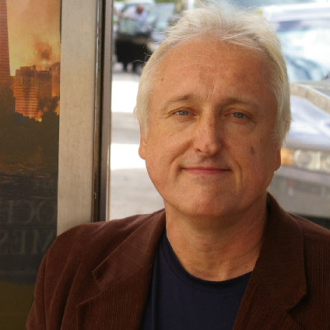Gregory Pflugfelder, a professor at Columbia University, found himself unexpectedly arrested by the NYPD outside his home in response to student protests against the war in Israel. Despite never being on campus, he was charged with obstructing government administration, along with 112 others at Columbia and City College of New York. This resulted in claims of heavy-handed police tactics to quell mostly peaceful demonstrations against the Israel-Hamas conflict. Pflugfelder, a respected educator, was taken aback by the turn of events following his 28-year tenure at Columbia.
Pflugfelder had planned to spend the day relaxing after finishing his final class at Columbia, where he taught a popular course on Japanese monsters. Instead, he found himself caught up in the turmoil of student protests against the war in Israel. Despite supporting the students’ right to demonstrate, he was arrested while attempting to document the historic events unfolding near his apartment. The arrest, along with hundreds of others, has raised concerns about the police response to the protests and whether it was necessary or justified.
Following his arrest, Pflugfelder was taken into custody by the NYPD and spent several hours in a holding cell with other arrested individuals, including students from Columbia. During the ride to the police station, he engaged in conversation with his fellow detainees, learning that many of them were Columbia students involved in the protests. Witnessing the bruising and violence against some of the arrested protesters, Pflugfelder was troubled by the extreme measures taken by the police during the arrests.
Upon his release from custody, Pflugfelder was given a ticket to appear in court at a later date. Despite being free, he found it challenging to rest after the traumatic experience. The American Association of University Professors has also documented accounts of what they perceive as unnecessarily violent responses to peaceful protests at universities, raising questions about the rationale behind the police actions at Columbia and other campuses. Pflugfelder now faces the prospect of navigating his way through legal proceedings and potential interactions with the university administration.
As a respected professor with a long history at Columbia, Pflugfelder finds himself in an unexpected and vulnerable position following his arrest. With no communication with the university administration yet, he remains hesitant about engaging with an institution that he feels has wronged him. As protests against the war in Gaza continue to gather momentum on campuses across the country, the treatment of protesters and the role of law enforcement in maintaining order are under scrutiny. Pflugfelder’s experience serves as a reminder of the complexities and challenges faced in navigating activism and academic freedom in a time of heightened social and political tensions.


